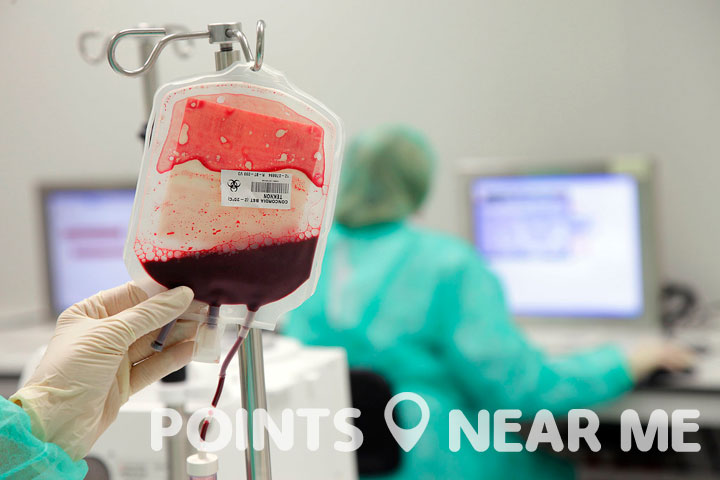Cord Blood Donation Near Me
Cord blood can be a valuable source of life saving stem cells and an amazing tool for research. Choosing to donate your newborn’s cord blood rather than keeping it for private use is a selfless act that can potentially save lives and advanced life altering research for issues such as cancer and genetic disorders.
To start your cord blood donation journey, start by searching cord blood donation near me on the map below. As you start deciding whether or not to donate your child’s cord blood, read on for all the facts, benefits, and associated costs. Know that you’re taking valuable steps in helping the world at large and potentially your own child. What a noble act indeed.
Cord Blood Donation Near Me – Find it on the Map
Cord Blood Donation Near Me – Cord Blood Donation Trivia
How far ahead of your due date should you contact a cord bank about donating?
During pregnancy, it is normal not to start thinking about cord blood storage or donation until right before your due date. However, experts recommend that you contact a cord blood bank after the start of your 28th week if you plan on donating cord blood. This can give you and the bank ample time to figure out costs, logistics, and planning.

Cord blood donation is truly a noble and selfless endeavor.
Does it cost anything to donate cord blood?
Don’t worry if you don’t have much in the bank after giving birth. Donating cord blood will not cost you a dime. Right now, there is no cost to donate to a public cord bank. The only way you would have to pay to have your cord blood stored is if you strayed from donation and instead opted to have the blood stored with a private or commercial bank for private use only. A public cord bank covers all costs of collecting, processing, and storing the cord blood long term. The only downside is that you may not have access for private use in the future as it could be used by someone else or for research purposes. The upside is that you’re likely saving a life either way. While searching cord blood donation near me, know that you won’t pay a cent to help save a life.
Is labor and delivery affected by cord blood donation?
One fear many mothers and fathers have is that cord blood donation or extraction will somehow affect labor and delivery. Here’s the truth: cord blood donation has nothing to do with your labor or delivery. In fact, your labor and delivery will not be affected in any way. Nor is the cord blood donation affected by your method of labor and delivery. During the delivery of your baby, the focus is on your safety and your baby. Only after the baby has safely been born is the blood collected from the cord and placenta. No blood is taken from your baby. There is also no pain associated with the collection process. The entire collection takes under five minutes and is painless to you and the child. While on your quest to find cord blood donation near me, keep in mind that the process is painless and totally stress free. No one is harmed in the process of collection, but are lives could potentially be saved thanks to those few minutes after birth.
Cord Blood Donation Near Me – Cord Blood Donation Facts
Donating For Public Use
While you search cord blood donation near me, there are a few things to know about donating for public use. One of the most pressing questions patients have is if donated, will the cord blood always be stored and ready for a transplant? The answer is a resounding “yes.” If the donated cord blood meets specific quality standards, then it will always be stored and ready for transplant. What quality standards must be met? To start, all cord blood must contain enough blood-forming cells for a transplant.
If there are too few cells, then the cord blood donated cannot be listed on a registry. Instead, it would be used in research related to the use of cord blood transplants. Another standard involves your (the mother’s) health. You must meet basic health guidelines in order to have your cord blood placed on a registry for use. For example, cord blood and your blood must be free from any type of infection or medical concerns. If all of these boxes are checked, then you can easily donate for public use and have cord blood placed on a registry such as Be The Match.
Public Vs. Private
Many new mothers wrestle with the idea of donating for public use or keeping the blood for private family use. Both have benefits and drawbacks. One of the most pressing being cost. Which is right for you? At the end of the day, that’s a personal decision that only you and your family can make. Typically, the umbilical cord and placenta are discarded after the baby is born unless you make a firm decision one way or another. In this way, it is better to donate if you don’t plan on paying to keep the cord blood for private use. At least someone can benefit from the valuable stem cells in the cord blood. But, at the end of the day, the decision is yours alone.
If you choose to donate to a public cord bank you won’t pay a dime in processing fees or storage. The cord blood can then be matched with a recipient or used for valuable research. If you want the cord blood as a sort of biological insurance policy, then you can pay to have it stored in a private cord blood bank. One of the greatest benefits of choosing private storage is that your child, their siblings, and immediate family members may have access to the cord blood should any of them be diagnosed with an immediate medical need. While searching cord blood donation near me, weigh your options carefully and decide which method is really best for you. At the end of the day, you’ll know what’s right.












